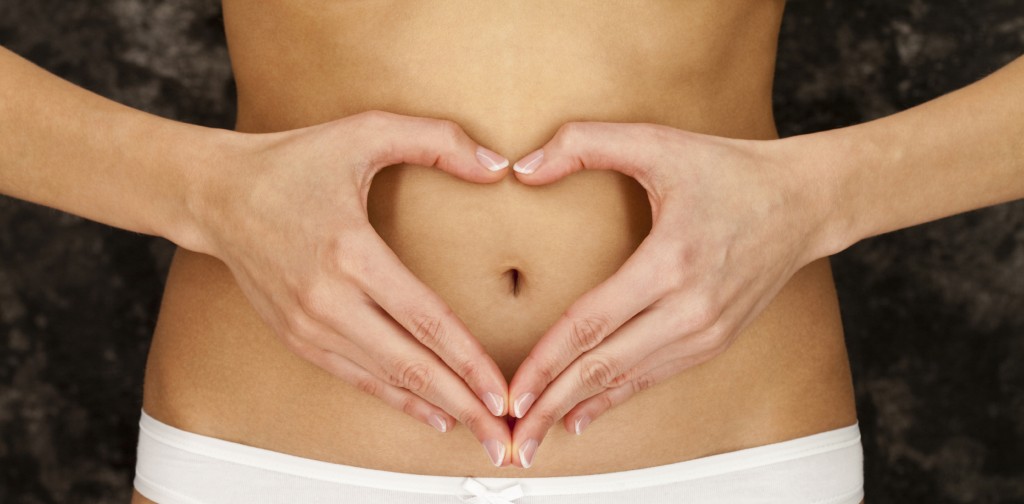Probiotics and Fermented Food for a Healthy Gut

The total number of bacteria (microbes) that live on the surface of our skin and inside our bodies is said to be 10 times greater than the total number of our human cells. So your body contains 10 times MORE bacteria than actual human cells!
The largest collection of our microbial friends lives in our gut – yes, your gut harbours trillions of bacteria. Recent studies have indicated that the health of your immune and digestive system are directly linked to the number of healthy bacteria living in your gut. Some of these bacteria’s (namely Bifidobacterium bifidum and acidophilus) help with the synthesis of B vitamins, like B12, which can directly effect your energy levels. These bacterial strains are also indicated in increased food digestion and help to inhibit the growth of unfriendly bacteria, such as salmonellae.
Our bodies are in a constant state of change and repair, and we are always eliminating and excreting waste via sweat, urine and our bowels. The more often you eat and replenish your friendly gut bacteria (also known has gut flora), the more populated it becomes. Probiotics often come in the form of capsulated or powered supplements, but there are other ways to get probiotics without having to take a supplement.
So here are 4 ways to get more probiotics into your gut, on the daily!
1. Fermented foods:
Fermented foods like sauerkraut, kimchi, miso, tempeh, some pickles, kefir and plain yogurt have gone through the process of lactofermentation, in which natural bacteria feed on sugars in the food creating lactic acid. This process creates beneficial enzymes, b-vitamins, and various strains of probiotics, excellent for gut health. When searching for a quality plain yogurt rich in probiotics, make sure it says “live and active cultures” on the package. This will ensure that you are getting living probiotic strains.
2. Kombucha:
Kombucha is an ancient fermented tea and has come into the health scene recently, and can be found at almost every major health food store. It is a cold effervescent tea, and often comes in different flavours, for those who haven’t yet adjusted to the taste of original Kombucha. This is an excellent way to get more probiotics into your gut, and this tea will give you an amazing healthy buzz that caffeine can’t top!
3. Genuine Health Fermented vegan proteins+:
If you like adding protein powder into your smoothie to make it a simple and rounded meal on the go, this is a great choice. It is the first and only fermented protein on the market! What makes it so great? It is a fully fermented, which ensures that it is easily digested and contributes to a healthy gut flora. Probiotics and protein in one simple drink!
4. Cook with cultured Ghee:
Ghee is butter that has been clarified, meaning the milk solids and impurities have been removed. Ghee made with cultured butter or cream contains plenty of probiotic goodness, along with many other gut healing benefits. Ghee has a high smoke point, so it is not easily denatured by heat. It promotes longevity, contains an antioxidant to help reduce bad ‘LDL’ cholesterol levels, improves digestion and absorption of nutrients, and it enhances endurance and immunity. Often those with dairy intolerances find Ghee tolerable.
Join me Thursday April 30th, 7-830 pm – I am presenting a FREE workshop at Nature’s Emporium in Newmarket. I will be there to introduce my NEW book and will be talking about the benefits of adding fermented protein powder along with your other plant-based protein sources into your diet and how this can heal your gut and help to increase your lean muscle tissue.
Have yourself a fantastic day and cheers to your gut health!
Written by: Vanessa Fioretti, RHN
Resources:
Jian Xu, Evolution of Symbiotic Bacteria in the Distal Human Intestine, July 2007
Katie W, Health Benefits of Fermented Foods, http://wellnessmama.com/2245/health-benefits-fermented-foods/ ,04/25/15
Elson Haas MD, Staying Healthy with Nutrition, The Complete Guide to Diet and Nutritional Medicine, Celestial Arts, 2006

